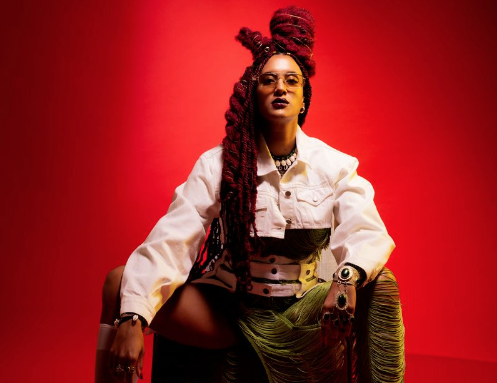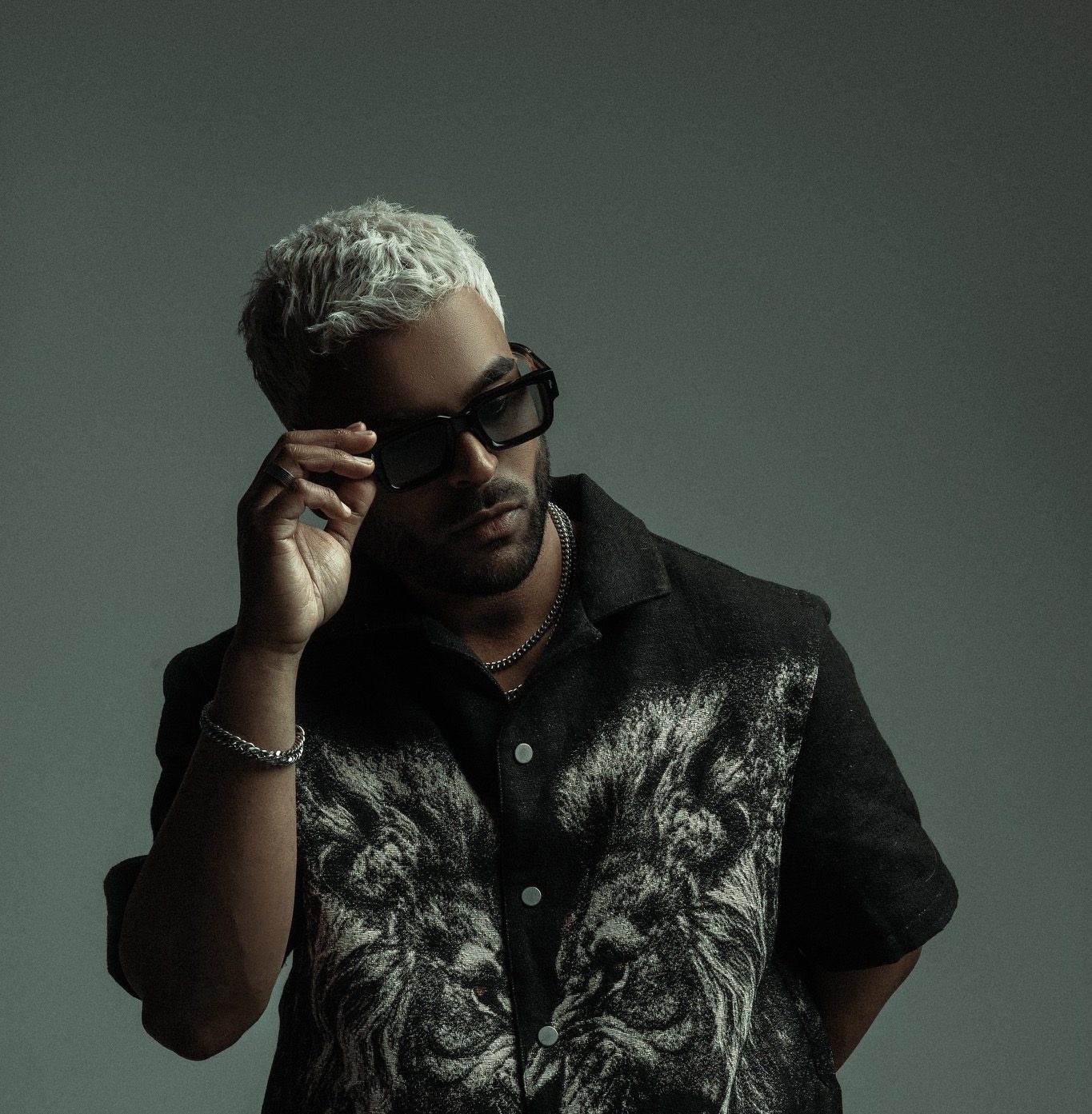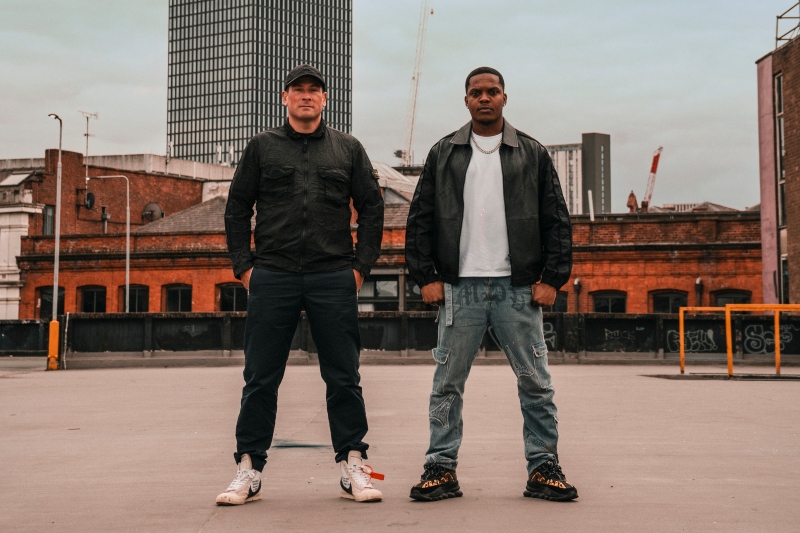
Q + A with AWEN: Navigating Afro-House, Empowerment, and Her Musical Evolution
In this exclusive interview, Afrotrax had the opportunity to speak with AWEN, the Afro-house artist whose powerful blend of electronic music and soulful melodies has captivated audiences worldwide. From her breakthrough hit ‘Your Voice’ to her ongoing journey of self-discovery through music, AWEN’s artistry is widely evident. In this interview, AWEN opens up about her path from a successful career in law to embracing music full-time, the creative process behind her upcoming album, and the challenges and joys of navigating the music industry as a woman of colour. She shares her thoughts on the future of Afro-house, her role as an artist in fostering change, and the personal experiences that fuel her lyrics.
This interview offers an intimate look at AWEN’s creative vision and the profound impact she hopes her music will have on listeners around the world.
Listen to ‘Your Voice’ while reading this interview:
Looking back, what was your earliest entry into music appreciation? And music production?
As far back as I can remember, I’ve always sung, but my earliest musical memory is when I first realized the power of using the voice to express emotions. It was while listening to The Miseducation of Lauryn Hill. I was captivated by how effortlessly she told a story that felt both weighty and universally relatable. Though I didn’t fully grasp the words at the time, her voice acted as a kind of universal translator. That moment revealed to me the deep emotional power and musicality embedded in every note, and it was then I discovered my own ability to communicate through songs
Musical production came later, in my late twenties, when I started working on my first solo EP. It didn’t take long for my vision—and what would become my signature sound—to emerge, no matter the genre I was exploring. That was a moment of true accomplishment for me..
What message do you hope listeners take away from your music?
My lyrics are always deeply personal, drawn from my own experiences. Writing feels like therapy to me, a way to heal through my music. By sharing these songs, I hope to offer others a sense of relief—a reminder that they’re not alone in what they’re going through, even if it feels like they are.
I also often weave messages of empowerment into my songs, as it’s my way of offering strength to anyone who listens, no matter where they are in the world or what challenges they face. That’s one of the reasons I love being a songwriter—you have the chance to connect with your audience and build an intimate relationship with them. They can turn to your music whenever they need support.
Outside of music, what inspires you?
I spend a lot of time daydreaming and reading about activists and philosophers, always struck by how history seems to repeat itself on both a macro and micro level. It’s as if we, as individuals, are constantly faced with the same challenges, and our role is to learn and evolve with each one. I’m still trying to make sense of it all and to understand my role in society.
Is there a particular moment in the music industry that inspires you today as an artist?
It’s hard to pick just one, but I’m generally inspired by the golden age of pop music, which spans from the ‘60s up until the mid-2000s’ crisis and the end of CDs. Of course, not everything from that era was groundbreaking, but there was a certain sense of musicality across th board that feels lost today, especially with the rise of streaming. While it’s amazing that anyone can produce music now, I can’t help but feel that music is a sacred art, and it saddens me to see how the democratization of production and distribution has, in some ways, lowered the overall level of music.
How do you stay motivated and inspired to continue creating, especially when facing adversity?
Frustration is an endless source of inspiration for me. I’ve come to realize that sometimes, when I feel like my creative well has run dry and I have nothing left to give, that’s when I end up creating my favorite pieces of music.
When I’m completely drained, my best remedy is to take a step back and spend time with my family. Being grounded in the present moment is what helps me recharge and get my creative flow back.
In your opinion how has your genre/s evolved over the years, and where do you think it could head in the future?
When it comes to Afro House, it’s gone from being a niche genre to gaining more and more popularity. However, nothing is set in stone. While it’s definitely one of the fastest-growing genres in house music, it’s still relatively small compared to something like melodic techno. What worries me, though, is that with this rise in popularity, many producers have jumped on the bandwagon, hoping for quick success, often relying on AI or cheap methods to churn out music. We’re already feeling the effects of this: Afro House is becoming flooded with shallow pop edits or music that feels stale and overly generic. Now, we’re at a crossroads—will this ‘elevator-music-Euro-centered’ version of Afro House kill the genre, or can we evolve and keep pushing forward? Only time will tell.
Can you share how your Senegalese roots and French influences shape your creative process and inspire your sound
I grew up listening to Black music in its broadest sense—not just Senegalese music. My parents instilled in me a deep sense of pride in being a person of color. I think that pride comes through in the music I create. No matter the genre, I’m always aware of what I represent and who is walking this path with me, figuratively speaking. My ancestors gave me this voice, and it’s my role to use it to amplify Black culture.
And the cherry on top is that I had the privilege of attending a classical music school in France while growing up. This experience gives me the unique opportunity to blend it all together, creating music that is deeply rooted in my mixed heritage.
What can we expect from your future releases or creative projects?
I’m currently working on my second album, and I’m already really proud of it. It feels like my own personal revolution. We live in a time where it’s incredibly difficult to make sense of everything happening around us and within us—figuring out where we fit in. This album is my attempt to understand my place in the world and how I can use my voice for the greater good, all while creating timeless music. The challenge is daunting, but I’m ready for it.
What was the pivotal moment that made you fully embrace music as your path, and how has that decision influenced your life?
I had tried the safe route—a regular job with all the perks that come with it: money, stability, a sense of belonging. But it didn’t work for me, and I gradually became deeply unhappy with my life. There was always something missing.
My partner played a huge role in this decision too; he believed in my potential long before I did. At the time, I had no contacts in the music industry and wasn’t sure where to start, so I applied what I’d learned from my previous career: I studied the paths others had taken to break into the industry and worked tirelessly.
What quickly became clear was that my ability to sing, write lyrics, and create catchy toplines gave me a strong edge. I decided to leverage that, using every collaboration and every release as a chance to understand not only the artistic landscape but also how the business side of things worked. Vocals are a crucial part of house music, especially in Afro House, and that gave me a distinct advantage.
Once you truly understand your position in the world, it’s much easier to navigate and turn most situations to your benefit. That’s the ex-lawyer in me talking. 😉
How do you see your role as an artist evolving in the global music scene
As artists, I believe we have a responsibility to make intentional decisions that spark positive change. For me for instance it means ensuring that the lineups I’m part of feature other people of color and/or women, so I’m not just the ‘token’ minority. The house music industry—and nightlife in general—can sometimes be completely oblivious to these issues, and it’s my role to set boundaries, refusing to accept things or behaviors that don’t align with my principles.
Tell us one interesting fact about yourself that no-one would expect?
I have a Ph.D in international private law and arbitration.
What is one piece of advice you want to leave with your fans?
My family’s favorite quote: “There is no need to hope in order to begin, nor to succeed in order to persevere.” by Guillaume d’Orange.
Follow AWEN
Facebook – Website – YouTube – TikTok – Soundcloud








Post a comment